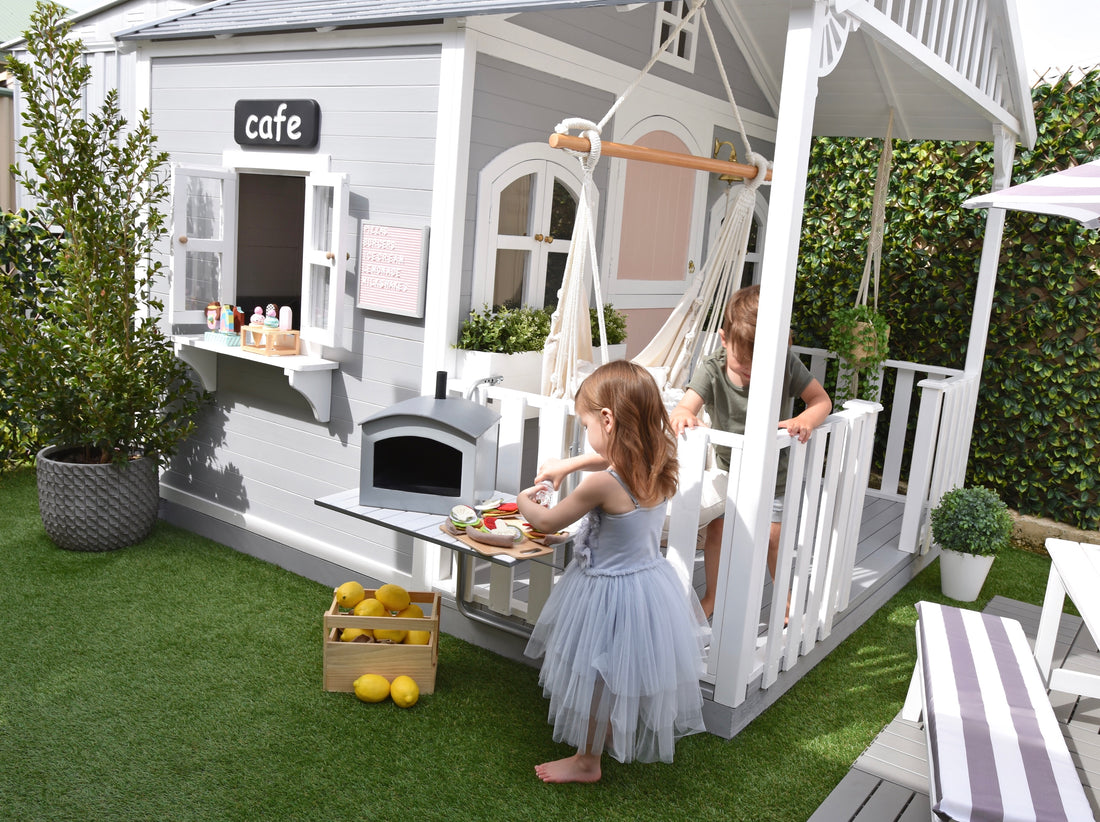Play is a fundamental aspect of childhood that fosters imagination, creativity, and social development. It's a magical time when kids can explore their surroundings, engage in make-believe adventures, and create lasting memories. When it comes to play, cubby houses have long been a beloved and cherished playtime haven for children. These miniature retreats provide a world of possibilities where young imaginations can flourish, offering a unique space for fun, learning, and development. In this blog post, we delve into the captivating realm of kids playing in cubby houses and the profound power of play in child development.
Unleashing Imagination and Creativity:
Cubby houses are like blank canvases waiting to be transformed by a child's imagination. With just a few simple props or the flicker of an idea, these humble structures can be transformed into castles, spaceships, or secret hideouts. Engaging in pretend play in cubby houses allows children to explore different roles, scenarios, and narratives. This imaginative play not only nurtures creativity but also enhances cognitive skills, problem-solving abilities, and emotional intelligence.
Developing Social Skills:
Cubby houses are magnets for social interaction among children. Whether it's a tea party, a game of make-believe, or a secret club, these cozy dwellings encourage collaboration, negotiation, and communication. Playing in cubby houses offers opportunities for children to engage in cooperative play, take turns, and learn the art of compromise. These experiences foster crucial social skills, such as empathy, teamwork, and effective communication, which are essential for navigating relationships and interactions throughout their lives.
Enhancing Physical Development:
While cubby houses may seem small in stature, they provide an excellent setting for physical play and gross motor skill development. Climbing up ladders, crawling through tunnels, and balancing on makeshift bridges within the cubby house can improve coordination, balance, and spatial awareness. Additionally, children can engage in active play by setting up mini obstacle courses or engaging in pretend adventures that involve running, jumping, and exploring the great outdoors. Such physical activities not only promote healthy growth but also instill a love for an active lifestyle from an early age.
Fostering Independence and Decision-Making:
Cubby houses provide a unique space for children to explore their independence and make decisions on their own. When kids play in these little havens, they have the freedom to arrange furniture, create their own rules, and take charge of their playtime. This autonomy encourages critical thinking, problem-solving, and decision-making skills. Children learn to make choices, assess risks, and take responsibility for their actions within a safe and supportive environment, fostering self-confidence and a sense of ownership.
Cubby houses hold a special place in the hearts of children as they embark on imaginative journeys and make memories that last a lifetime. These miniature retreats offer more than just a place to play; they become catalysts for growth, development, and learning. Through imaginative play, children develop essential skills, from creativity and social interaction to physical coordination and decision-making abilities. As parents and caregivers, we should embrace and encourage the power of play in cubby houses, recognizing its profound impact on children's holistic development. So, let's celebrate the magic of cubby houses, where dreams come alive and the power of play reigns supreme!

